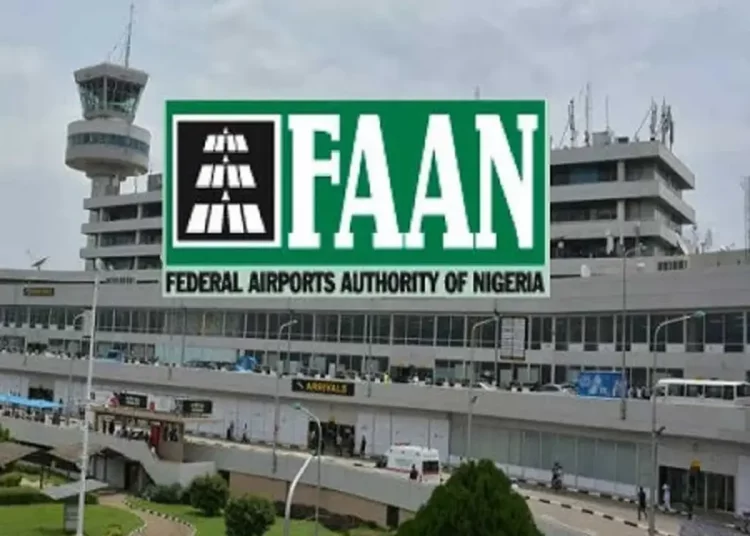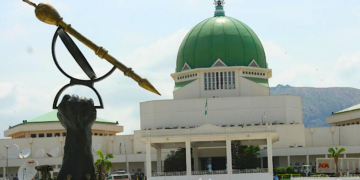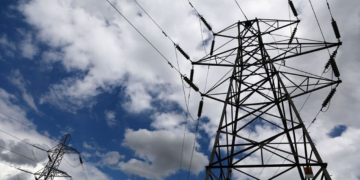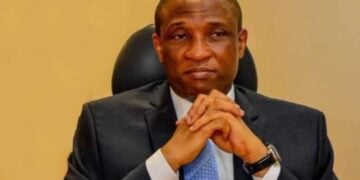Domestic airline operators have raised the alarm over the Federal Airports Authority of Nigeria (FAAN) ‘s failure to ensure proper insurance coverage for airports nationwide.
Speaking at the 5th CHINET Aviacargo Conference at the 21st Akwaaba African Travel Market in Lagos on Tuesday, the founder and CEO of Overland Airways, Edward Boyo, said non-insurance of the airports had had a detrimental impact on domestic airline operations.
Boyo urged the National Insurance Commission (NAICOM) to engage with the relevant authorities to ensure that all airports in Nigeria are properly insured, lamenting that poor airport infrastructure had resulted in significant damage to aircraft, with airlines bearing the financial burden.
Boyo, who highlighted the need for proper airport insurance coverage, cited issues such as inadequate wildlife control and runway deterioration, which had damaged some aircraft.
“These infrastructures are not insured,” he said. “The government would have to meet its own responsibility.”
Efforts to get a response from the director of Public Affairs and Consumer Protection, FAAN, Henry Agbebire, proved abortive as he said he would call back. But as of the time of filing this report 20:12 pm, the FAAN director had yet to return the call.
However, the immediate past managing director of FAAN, Capt. Hamisu Yadudu stressed that every FAAN-operated facility is fully insured and paid up to date, contrary to recent claims questioning compliance.
Captain Yadudu explained that all premiums had been cleared when he left office in 2023. He also confirmed that subsequent payments have been sustained, keeping the insurance cover current.
“All FAAN airports are fully insured, I can confirm to you. Payments were made up until the time I left. After your call, I made further checks and received confirmation that FAAN is still paying. So, there is no issue with FAAN airports; the state airports are questionable,” Yadudu said.
In response, the commissioner for insurance and CEO of NAICOM, Olusegun Ayo Omosehin, assured us that the commission is willing to engage with the authorities to address the issue.
Omosehin noted that the underlying rationale for compulsory insurance is to protect members of the public from harm and that NAICOM has been empowered to enforce mandatory insurance.
Omosehin, who was represented by the deputy commissioner for Insurance at NAICOM, Usman Jankara Jimada, explained that Nigeria’s insurance industry might not have the required capacity to reinsure a particular risk locally 100 per cent, so NAICOM has ensured that before any insurance company takes any risk outside Nigeria, the company needs to have utilised available local capacity in Nigeria, adding that once that is done, NAICOM would give the company approval to insure abroad.
“We have now insisted on very sound underwriting practices. Let me reiterate here that insurers are in the business of making profits. They are not there to make losses. And when we say sound underwriting practices, we are not just saying that you price your risk very well. You take cognisance of the risk that is brought to the table.
“This ensures that if there are claims of losses, the insurer can pay or settle that claim. It makes no sense if you pay $10 for a risk that is worth $1,000 and there’s a loss, and you’re not being paid. So, what NAICOM has done is to say, Pay the right price for your product.
“In doing that, you can also meet the resulting obligations arising from the insurance contract. Of course, we’ve also insisted on what you call contract certainty. Before now, you would have had aviation policies that were unclear about the terms.
“We’ve banned all sorts of contract uncertainties to the effect that all insurance policies must be such that the policyholder understands the terms and the conditions of the policy,” he explained.
Also speaking, the managing director, PeakThrust Insurance Brokers Limited, Bimbo Onakomaiya, mentioned there are about 370 registered aircraft in Nigeria, out of which 147 are with the Nigerian Air Force and about 170 domestic aircraft for business and pleasure.
According to Onakomaiya, in addition, there are about 31 airports, about 92 airstreams and 13 scheduled commercial aircraft operators in Nigeria and growing, adding that there is no way Nigeria would have such a high number of fleets without having a very strong insurance backing for these aircraft.
“And so there is a need to work hand-in-glove with NAICOM. A better part of synergy is what we can expect. We cannot expect synergy if both of those industries are not strong. Because when we have synergy of different areas of both industries, we would have better results”.
She said the industries were getting stronger by the day, especially with the Nigerian Insurance Industry Reform Act 2025 (NIIRA 2025).
Onakomaiya said the Nigerian economy was actually a developing one, heavily reliant on trade, logistics, and transportation, adding that the transportation industry cannot do without aviation.
She mentioned that what the insurers do, and where the synergy is important, is that as insurers, they must cover and promote business confidence and ensure that all the risks involved are actually mitigated.
“You’ll be shocked that there’s piracy within the aviation industry. So, it’s very important for us to work together. There’s also the aspect of human capital. There are human beings involved in these operations. There’s the group life insurance for these human beings. There’s the group personality accident insurance for these human beings and other forms of insurance coverage.
“All these require synergy between the insurance and aviation industry. Emerging synergies will enhance safety. It will deepen Nigeria’s ability to compete in the global aviation industry,” she added.





